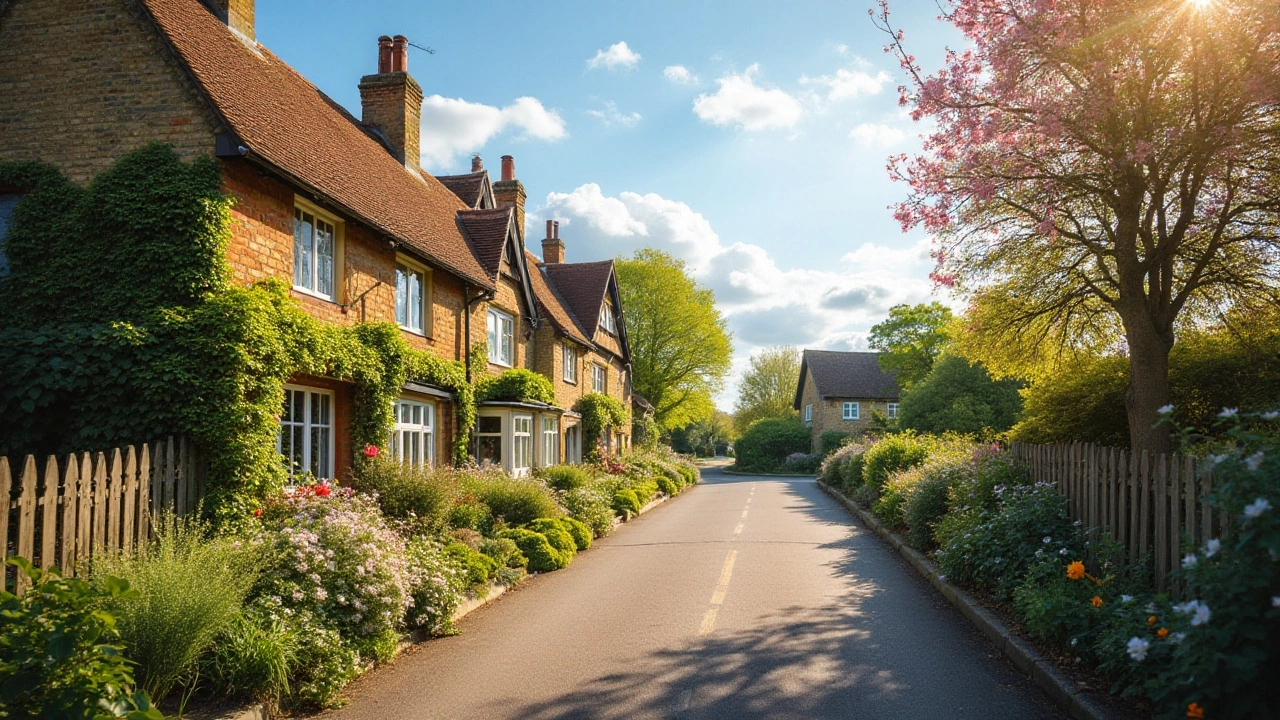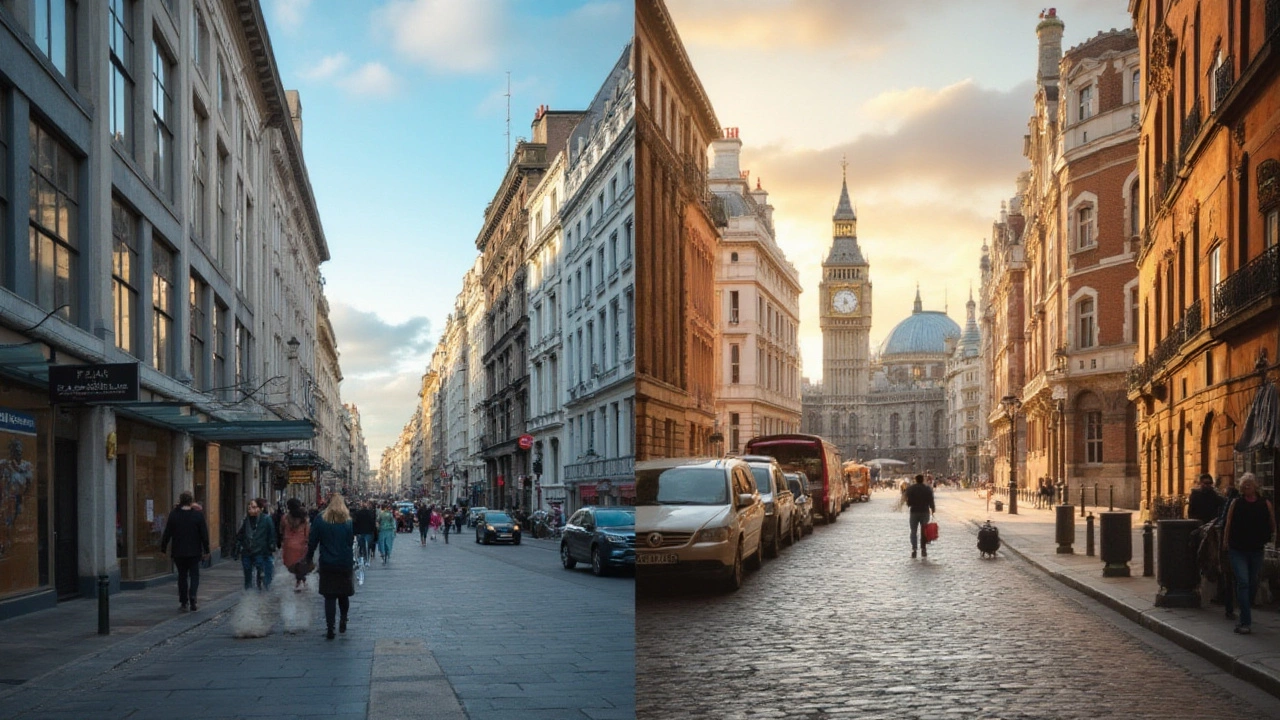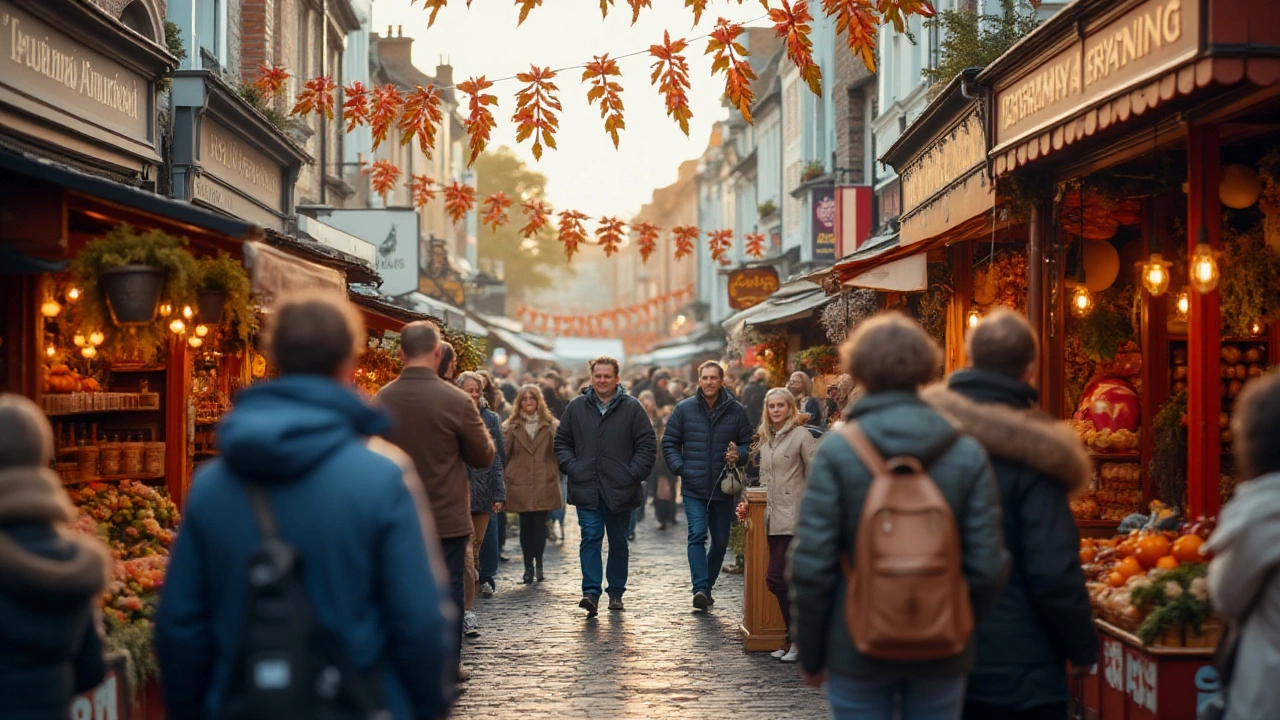Airbnb vs Hotels: Cost-Efficient Choices for UK Staycations
 Jan, 16 2025
Jan, 16 2025
Travel enthusiasts sniffing out staycation adventures in the UK often hit the crossroads when choosing between Airbnb rentals and traditional hotels. Deciding where to hang your hat is not just about comfort; it's about protecting your wallet without compromising on your dream holiday vibes. While both options have their allure, the key is to find what aligns with your unique travel style and budget.
With more people opting to explore local gems, understanding the price dynamics of Airbnb and hotels couldn't be more timely. If you're working with a tight budget, consider the many factors that sway costs—like location, date, and amenities. You might find that a cozy Airbnb flat tucked away in a charming village is a sweet spot for your pocket, or discover that a hotel right in the city center offers deals too tempting to ignore.
This article aims to unravel these options, helping you to zoom in on where your pounds are best spent. Whether it's the personal touch of an Airbnb or the convenience and services of a hotel, your perfect staycation spot is just a decision away.
- The Evolution of Airbnb and Hotels
- Cost Factors to Consider
- Pros and Cons of Each Option
- Budget-Friendly Tips for Booking
The Evolution of Airbnb and Hotels
Over the past decade, both Airbnb and traditional hotels have undergone significant shifts to meet the changing demands of travelers. Airbnb, which began in 2008 as a quirky way for strangers to share their living spaces, rapidly transformed into a global powerhouse. It brought about a new way of thinking about travel accommodations, appealing to those looking for more personalized and often more economical experiences. Today, Airbnb offers a diverse array of lodging options ranging from rustic barns in the countryside to luxurious penthouses in city centers. This diversity undoubtedly disrupted the traditional hotel industry, forcing hotels to rethink their services to stay competitive.
On the hotel front, the industry has been a staple of the travel experience for centuries, providing predictable standards and comfort for guests around the globe. However, with the advent of Airbnb, hotels have had to embrace more innovative approaches. Many have introduced a variety of lifestyle-focused enhancements, such as experience-led offerings and personalized guest services. A focus on blending traditional hospitality with digital conveniences now dominates the hotel landscape, showcasing that adaptation is key in the ever-evolving travel sector.
An interesting pivot was observed when hotels started to minimize their reliance on direct room bookings by enhancing the guest experience through partnerships with local businesses, wellness offerings, and unique dining experiences. According to a 2020 study by CBRE Hotels, hotels that integrated experiential elements recorded a 20% increase in customer satisfaction. The rise of UK staycations only solidified the need for both Airbnb and hotels to offer accommodations that fit their customers' desires for immersive, comfortable stays without venturing too far from home.
It's important to mention an illustration of this shift. In an interview with BBC Travel, hospitality expert Angela Skelley noted,
"The way people travel has dramatically transformed; the experience factor is now critical. Both hotels and Airbnbs have to offer something beyond a bed—it's about creating a memorable experience that resonates with each guest."This shift is a testament to the industry's adaptability and resilience, indicating that both Airbnb and hotels can coexist by focusing on differentiated service offerings that cater to the nuanced demands of the modern traveler.

Cost Factors to Consider
When grappling with the choice between Airbnb and hotels in the UK, several important cost dynamics come into play. First on the list is location. Urban areas, like London and Manchester, often boast higher accommodations due to their bustling environments and access to amenities. An Airbnb nestled in the countryside, though tranquil, may offer more competitive rates but could lead to additional travel expenses if you aim to visit nearby attractions. Geography indeed plays a pivotal role in determining your accommodation expenses, making it vital to weigh location against what you intend to do on your staycation.
Another significant factor pertains to the time of year. In peak seasons, such as summer holidays or Christmas, prices tend to soar with demand, whether you’re booking an Airbnb or a hotel. It's not uncommon for rates to double or triple, making it a wise practice to plan your staycation around off-peaks if possible. Timing your booking far in advance can also unlock deals you might otherwise miss by waiting until the last minute. The elasticity of pricing during various seasons is a strategy both Airbnb hosts and hotel managers leverage to ensure full occupancy, so savvy timing is crucial.
Amenities, too, must be factored into the equation. While hotels often tout packages that include complimentary breakfasts, access to pools, fitness centers, and concierge services, these luxuries aren't always folded into the Airbnb experience. Conversely, an Airbnb might provide a full kitchen, laundry facilities, and a more spacious environment, which could reduce dining out and extra sanitation costs during extended stays. Weighing these amenities against their monetary value is how travelers can ensure they'll get the most out of each penny spent.
Travelers should also consider the length of their staycation. A quick weekend getaway may warrant the comfort and ease of a hotel, whereas long-term stays might benefit from the reduced daily rates that are often available through Airbnb bookings. Something many may not realize is that substantial discounts can sometimes be negotiated for longer stays, particularly on Airbnb platforms. This small detail could help in cutting down costs significantly for those who are looking to soak in a little extra scenery.
Lastly, let's not overlook the pesky hidden fees. Hotels may slap on resort fees or fees for parking, while Airbnb might surprise you with cleaning charges and service fees. Understanding these add-ons before booking is essential to prevent any unpleasant surprises. As Lonely Planet wisely notes, “The devil is in the details, and being unaware of hidden charges could bloat your travel budget beyond recognition.”
Lonely Planet also suggests, "Sometimes it's not the price tag at first glance that defines the cost, but the fine print."Being meticulous with reading the fine print and comparing final costs, rather than just upfront rates, is key.
With a keen eye on these cost factors, travelers can navigate the sometimes murky waters of accommodation expenses more clearly. Making informed decisions helps ensure the staycation is as budget-friendly as it is enjoyable.

Pros and Cons of Each Option
Deciding between an Airbnb rental and a hotel for your UK staycation involves weighing a variety of factors, each offering its own set of advantages and drawbacks. Let's start by diving into the more homely and personalized side of the spectrum – Airbnb. With Airbnb, travelers often find themselves submerged in unique, locally-flavored experiences that hotels might not replicate. The charm of staying in a quaint cottage in the Lake District or a sleek flat overlooking Edinburgh’s skyline can make your getaway feel intimate and authentically British. These homes often provide the flexibility and freedom that a traditional hotel might lack, allowing visitors to soak in the local culture at their own pace. Whether it's cooking in a fully equipped kitchen or having access to a private outdoor space, the amenities can often save money for those who prefer prepping their own meals or savoring a leisurely afternoon tea under the sky.
"One of the greatest benefits of platforms like Airbnb is the direct connection with locals. Guests can enjoy tips and insights that aren’t typically available in guidebooks, adding an enriched layer of engagement to their travels," noted a 2022 article in The Guardian.
However, renting from Airbnb is not without its pitfalls. Guests might have to deal with diverse standards of cleanliness and professionalism as each listing is individually managed by its host. WiFi might be less reliable, and there may be additional costs like cleaning fees that aren’t included upfront, turning the seemingly affordable option into something pricier than expected by checkout. On the other hand, you have traditional hotels, the ever-reliable giants of the hospitality industry, which come armed with a suite of predictable standards and amenities. They're almost synonymous with ease and comfort, offering round-the-clock service, daily housekeeping, and on-site dining options that even the most discerning travelers find reassuring. In hotels, keeping in touch is generally a breeze with most locations offering free, fast WiFi, and for families, connecting rooms provide a semblance of home in a more controlled environment.
That said, hotels can also be quite the dampener on spontaneity compared to the potential for adventure that Airbnb holds. Hotel rooms, although comfortable, don't offer much variety or distinctiveness beyond their luxury beds and pleasant toiletries. Another point of contention could be the rigid check-in times, and the occasional lack of privacy, particularly in bustling tourist spots where thin walls can sometimes make neighbors audible. Pricing, especially during peak seasons or high-demand areas, can also inflate, leaving tourists with heftier bills after shorter stays. To place these options side-by-side, consider the seasoned traveler looking for consistency and convenience. For them, the hospitality services offered by hotels can be a perfect fit. In contrast, someone out to uncover the local heartbeat of a city might find more value in an Airbnb stay.
Ultimately, the decision hinges on personal preferences and specific travel needs. Some might favor the expansive amenities and structured environment of hotels, while others flourish in the cozy and unique spaces provided by Airbnb. For tech-savvy travelers, a helpful exercise could be creating a comparison table of features each trip requires. Observing how each option fares in categories like budget, location, and the nature of amenities could steer the direction of the decision accurately.

Budget-Friendly Tips for Booking
When planning a staycation, securing a memorable trip without breaking the bank often requires a few insider tricks and strategies. First off, timing is everything. If possible, target your Airbnb or hotel booking during off-peak seasons, typically when demand wanes. This period often stretches from late winter to early spring, excluding major holidays. During these times, both accommodations are more inclined to offer hefty discounts and promotions to fill vacancies. This approach can potentially save you anywhere from 30% to 50% off regular rates, freeing up funds for other fun escapades like dining out or local excursions.
Another tip is to leverage booking sites and apps that provide price alerts. These features notify you when the prices drop or a property has a special offer. This is particularly helpful for last-minute staycations when flexibility is key. Many travelers find that surprise deals on platforms like Airbnb happen frequently, especially if a host wants to fill their calendar. As a backup, always check aggregator sites to compare offerings not just by price, but also by included amenities. For instance, a hotel might include a complimentary breakfast, which while seemingly minor, can add up as savings over the length of your stay.
Consider negotiating! Especially for Airbnb accommodations, where personalization in the booking process is more feasible. A polite message to the host detailing why you're interested in staying at their property and kindly asking if they offer any discounts for extended stays or last-minute bookings could lead to unexpected savings. Don’t shy away from being personable and direct, as many hosts are open to discussion if it means securing a booking.
"I always suggest travelers reach out directly to the host or hotel with specific requests or questions,” says travel expert Samantha Brown. “You'd be surprised how many hosts appreciate the personal touch and are willing to offer upgrades or discounts."
Explore less touristy locations that still offer a rich and rewarding experience. Sometimes, venturing just a bit outside of a major city or popular destination can significantly reduce costs. Local gems often provide an authentic taste of the region without the inflated prices of more renowned spots. Lastly, remain vigilant about additional fees like cleaning charges with Airbnb rentals or resort fees at hotels, ensuring those are clearly understood before confirming your booking. Avoid surprises by reviewing all costs and cancellation policies, which can protect both your planning and your pocket.
